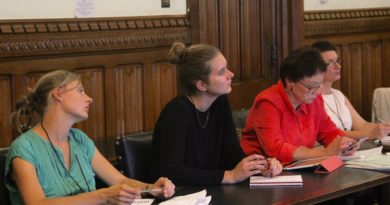How settled status can become a trap for non-EU family members of dual EU-British citizens
When Joanna (a fictional name) obtained settled status in the UK, she felt relieved. Settled status requires her to fulfill fewer criteria to secure the right to stay in the UK compared to permanent residence, a right people got under the old EU system.
Under the old scheme, citizens from the European Union, Norway, Iceland, Liechtenstein and Switzerland could automatically acquire permanent residence after “having exercised treaty rights” for five years. This usually meant working in the UK. However, students or self-sufficient persons could also qualify, as long as they were covered by a comprehensive sickness insurance (CSI) to avoid burdening the public healthcare system.
A card was not needed to prove the right to permanent residence in the UK. But EU nationals needed it if they decided to apply for British citizenship, after one year of holding permanent residence.
In comparison, ‘settled status’ is simpler. It is based only on five years of residence, it does not require carrying out an economic activity, it allows five years of absence (instead of two), and still opens a path to citizenship after one year.
Joanna, an EU citizen in the UK who is not working and does not have CSI, would not have been eligible for permanent residence but could acquire settled status. She was also pleased at the apparent superiority of settled status over permanent residence.
One year after ‘settlement’, she was also planning to apply for British citizenship. And with her new legal position, she wanted to sponsor her mother-in-law, a non-EU citizen, so she could settle in the UK too.
But those plans came to a sudden halt when she found out her naturalization could have deprived her mother-in-law of her rights in the UK.
How could this happen?
The alarm was raised in November 2019, when her partner enquired about their plans on UKCEN, an online forum with more than 6,000 members that helps people acquire UK residence and citizenship.
To apply for settled or pre-settled status, non-EU family members of EU citizens can be sponsored by a “relevant naturalised British citizen,” i.e. an EU national who has naturalised British and has become a dual UK-EU citizen.
“Relevant naturalised British citizens have special rules which apply to them, if they want to sponsor a family member,” explains says Louis MacWilliam, immigration solicitor at Truth Legal and UKCEN advisor. “They must either have permanent residence or be a qualified person.”
UKCEN lawyers and administrators thus realised that, to sponsor a non-EU family member, dual UK-EU nationals still need to have a right of permanent residence or be economically active in accordance with the old system, even if they have already secured settled status.
In other words, the requirements under the old system have remained in place for many dual UK-EU nationals looking to sponsor a non-EU national.
These requirements include being economically active, or being a student or a self-sufficient person with comprehensive sickness insurance, preconditions that were scrapped from settled status because many EU nationals, simply unaware, were failing to comply with CSI.
A Home Office spokesperson has confirmed with Europe Street that “a dual British-EU citizen wishing to sponsor a non-EU family member under the EU Settlement Scheme must meet the definition of a relevant naturalised British citizen” and the criteria for that “reflect EU caselaw” (the European Court of Justice’s Lounes judgment).
“A dual British-EU citizen who does not meet this criteria cannot sponsor a non-EU family member under EU law, and therefore cannot do so under the EU Settlement Scheme,” the spokesperson said.
“Serious consequences”
For non-EU family members of EU nationals who become dual UK-EU citizens without also meeting the requirement of the old system, the consequences could be serious.
“If EU nationals become British through settled status, rather than through holding a right of permanent residence, then they could extinguish the future rights of their non-EU family member,” says MacWilliam.
The problem could emerge when non-EU family members apply for settled status or in the transition from pre-settled to settled status. At one of these stages they risk having their cases refused and then losing their right to be in the UK.
“The family member […] could have been granted five years pre-settled status at a time when the sponsor was exercising treaty rights (e.g. working), but when the family member comes to apply for settled status, the sponsor’s circumstances could have changed so he or she is no longer exercising treaty rights nor has a right of permanent residence,” MacWilliam warns.
“If the family member’s visa expires and they have not been able to apply for settled status, or some other immigration route, or have tried to apply for settled status or in another category and been refused, then that person is ‘overstaying’, which is an immigration and criminal offence. That person is liable for removal,” MacWilliam continues.
In Joanna’s case, if she had naturalized, her mother-in-law would have been “unable to achieve the settled status at the end of her five years residence and become an illegal immigrant overnight,” says UKCEN.
Finding solutions
UKCEN, a volunteer-led organisation hosted by the Joint Council for the Welfare of Immigrants that has been part of the consultative group for the design of the settled status, has reported the problem to the Home Office.
The group is concerned that many EU nationals may have rushed to apply for British citizenship believing it would provide a more secure position than the settled status, “with little or no information on the implications for their [non-EU] family members.”
“There have been, so far, few citizenship applications with settled status. However, as the first anniversary of the opening of the settlement scheme draws near, we expect to see an increasing number of EU/EEA nationals applying for naturalisation with settled status, most of them totally unaware of the consequences this decision could have on any family members, including spouses, who have not been granted settled status,” says UKCEN founder Claudia Holmes.
The organisation, which started as a Facebook group in the aftermath of the EU referendum, called on the Home Office to improve the communication about these requirements. “Currently, it is not immediately clear to anyone applying to become a British citizen with the settled status that they need to prove they are, or have been, a qualified person, in order to sponsor their non-EU family members,” they say.
The group wants the Home Office to publish clear information on the official guidance and the online citizenship application form (AN form). “Failure to do so will lead to an increase in cases where the non-EU family members will be left without a secure status,” a UKCEN briefing says.
MacWilliam also argues that the Home Office could amend the requirements so that a person holding settled status can qualify as a sponsor without the need to meet the rules of the old system.
In the meantime, UKCEN lawyers recommend on the forum to make sure that both EU/EEA nationals and their non-EU family members obtain settled status before any of them takes the further step to apply for British citizenship.
Claudia Delpero © all rights reserved.
Image by Fran Friel from Pixabay.
Europe Street News is an online magazine covering citizens’ rights in Europe. We are fully independent and we are committed to providing factual, accurate and reliable information. We believe citizens’ rights are at the core of democracy and information about these topics should be accessible to all. This is why our website and newsletter are available for free. Please consider making a contribution so we can continue and expand our coverage.





